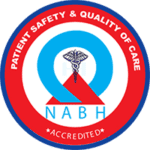Large Intestine Disease
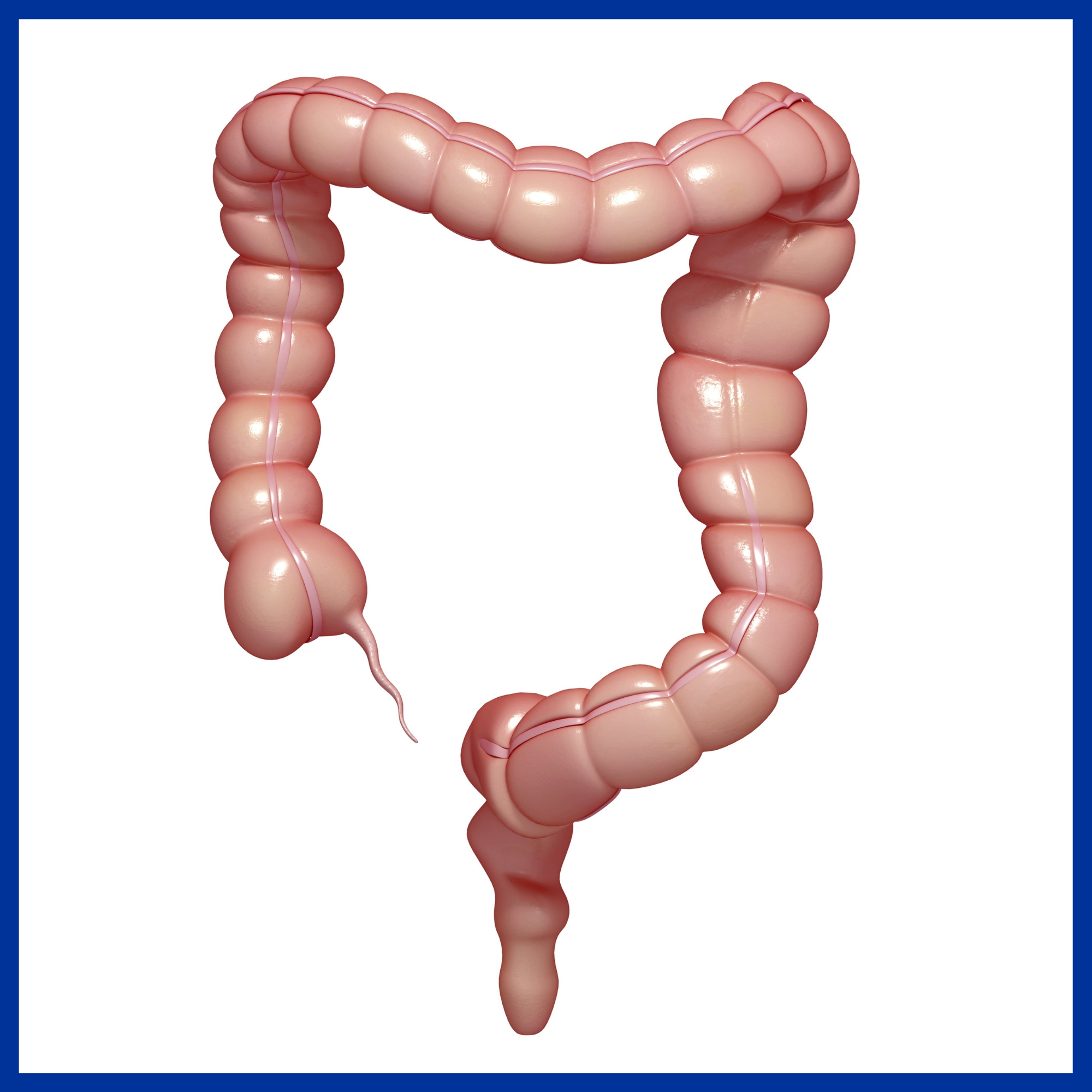
large intestine as the combination of the cecum, colon & rectum.
The colon consists of four sections : The ascending colon, the transverse colon, the descending colon, and the sigmoid colon
The length of the adult human colon is, on average, for women 155 cm (range of 80 to 214 cm) and for men 166 cm (range of 80 to 313 cm).
Functions :
To absorb fluids and electrolytes and provide temporary storage.
- Diverticulitis of Colon
- Sigmoid Volvulas
- Ulcerative Colitis
- Intestinal Gangrene
- Cancer of Large Intestine
If you or someone you know is suffering from any of the above condition, you can consult our team of Best Gastroenterologists in India. We at Kaizen Hospital provide Best Gastro Treatment in India.
Diverticulitis of Colon
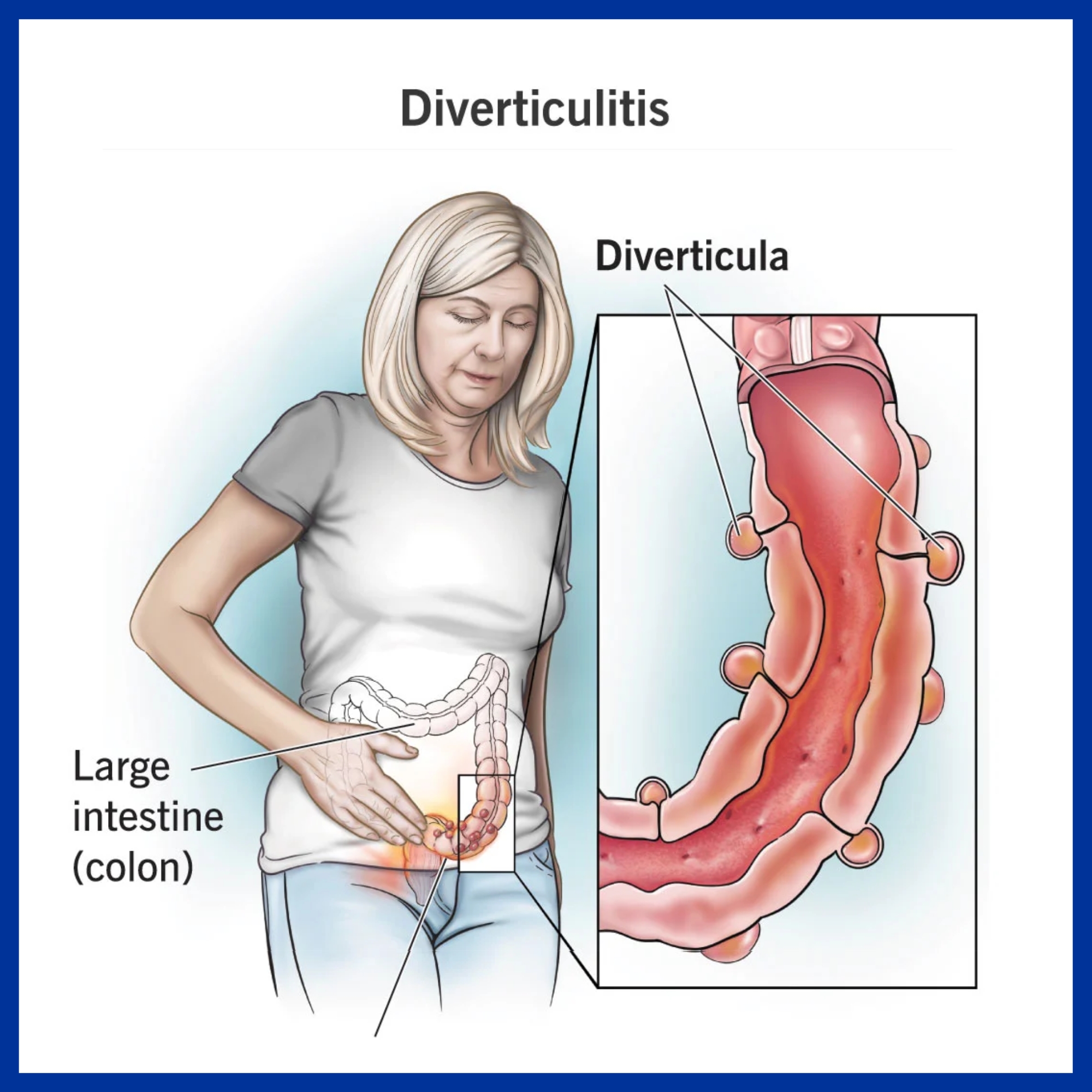
Symptoms of colon Diverticulitis
- Lower abdominal pain
- Abdominal tenderness
- Nausea and vomiting
- Fever
- Constipation or diarrhoea.
Diagnosis of colon Diverticulitis
- CT Scan
Treatment of colon Diverticulitis
- Antibiotics
- Analgesics
- Surgery in case of perforation, abscess, fistula or bowel obstruction
Complications
- Abscess formation
- Intestinal Obstruction
- Peritonitis
- Fistula formation
Sigmoid Volvulas
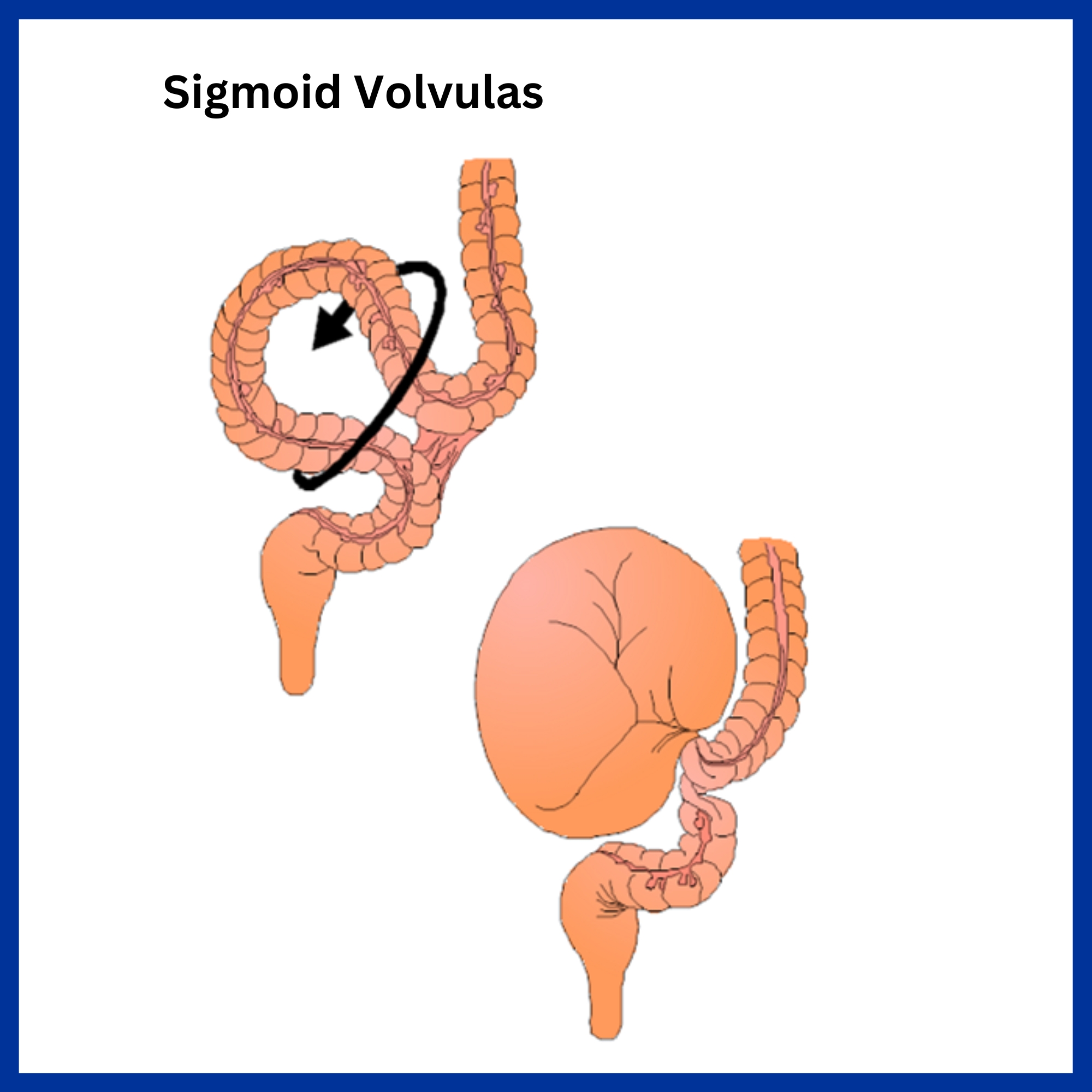
- Redundant intestinal tissues
- Constipation
Signs and symptoms of Sigmoid Volvulus
- Abdominal pain with distention
- Nausea, vomiting
- Constipation
If you or someone you know is suffering from any of the above condition, you can consult our team of Best Gastroentrologist in India. We at Kaizen Hospital provide Best Gastro Treatment in India.
- X Ray Abdomen
- Gastrografin
- CT Scan
- Sigmoidoscopy
- X Ray Abdomen
- Correction of fluid and electrolyte imbalance
- Surgery
Complications
- Perforation
- Strangulation
- Faecal peritonitis
- Gangrene
- Recurrence
Ulcerative Colitis
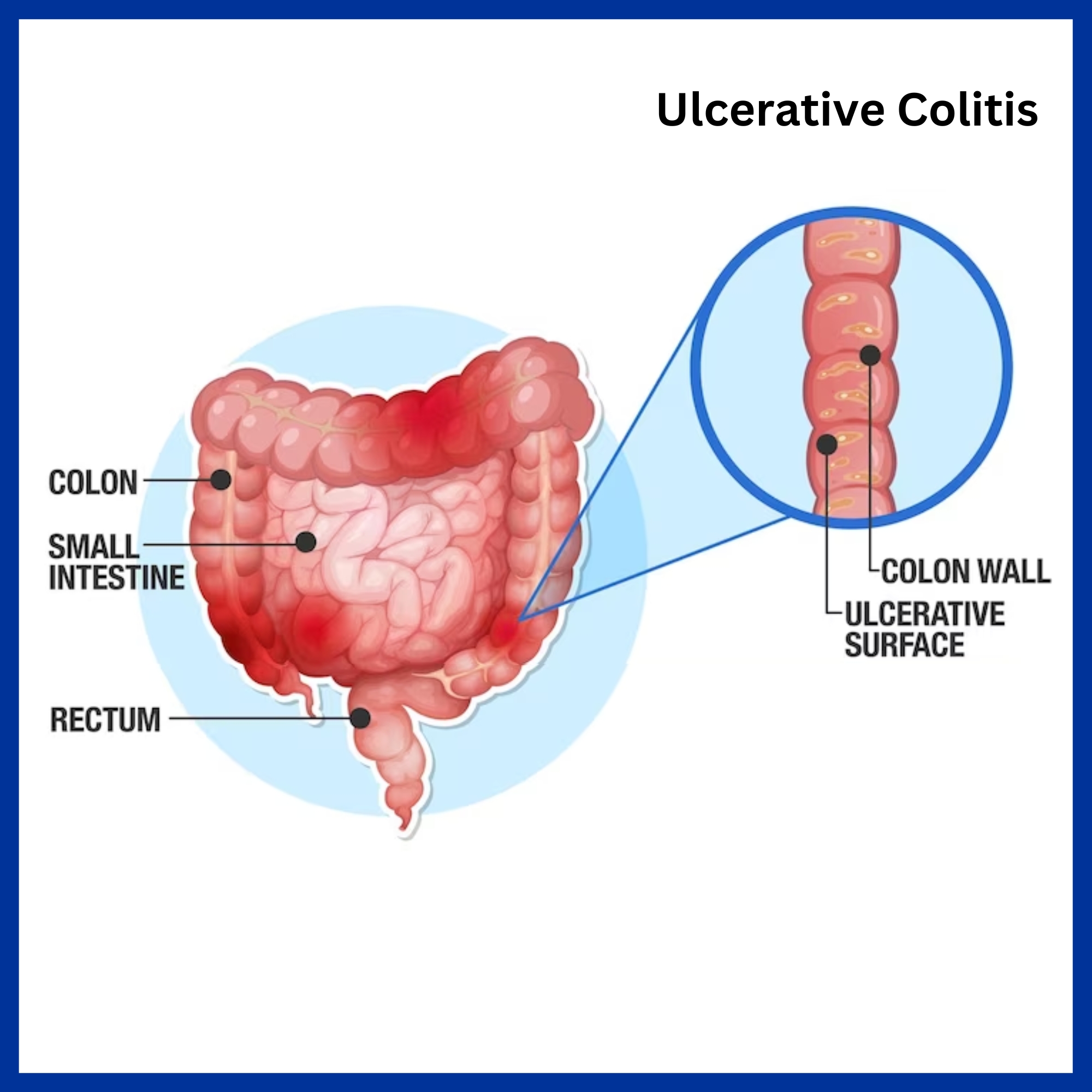
- The exact cause is not known.
- It is autoimmune disease.
Symptoms of Ulcerative Colitis
- Diarrhoea mixed with blood or mucus
- Abdominal pain and cramping
- Rectal pain
- Rectal bleeding on PR examination
- Urgency to defecate
- Inability to defecate despite urgency
- Weight loss
- Fatigue
- Fever
Diagnosis of Ulcerative Colitis
- CBC
- Stool R/M
- Colonoscopy with biopsy
- CECT Abdomen
Treatment of Ulcerative Colitis in Gujarat
Medical Management of Ulcerative Colitis in India
- Azathioprine
- Cyclosporine
Surgical Management of Ulcerative Colitis in India
RPC IPAA (Restorative Proctocolectomy Leal Pouch Anal Anastomosis)
- In this surgery, entire colon and rectum are removed and a pouch is created from small intestine and attached directly to anus, allowing you to expel waste normally.
- In some cases a pouch is not possible. Instead, surgeons create a permanent opening on abdomen (ileal stoma) through which stool is passed for collection in an attached bag.
Complications
- Severe bleeding
- Colon perforation
- Severe dehydration
- Osteoporosis
- Inflammation of skin, joints, eyes, and sores in oral cavity
- Risk of colon cancer
Intestinal Gangrene
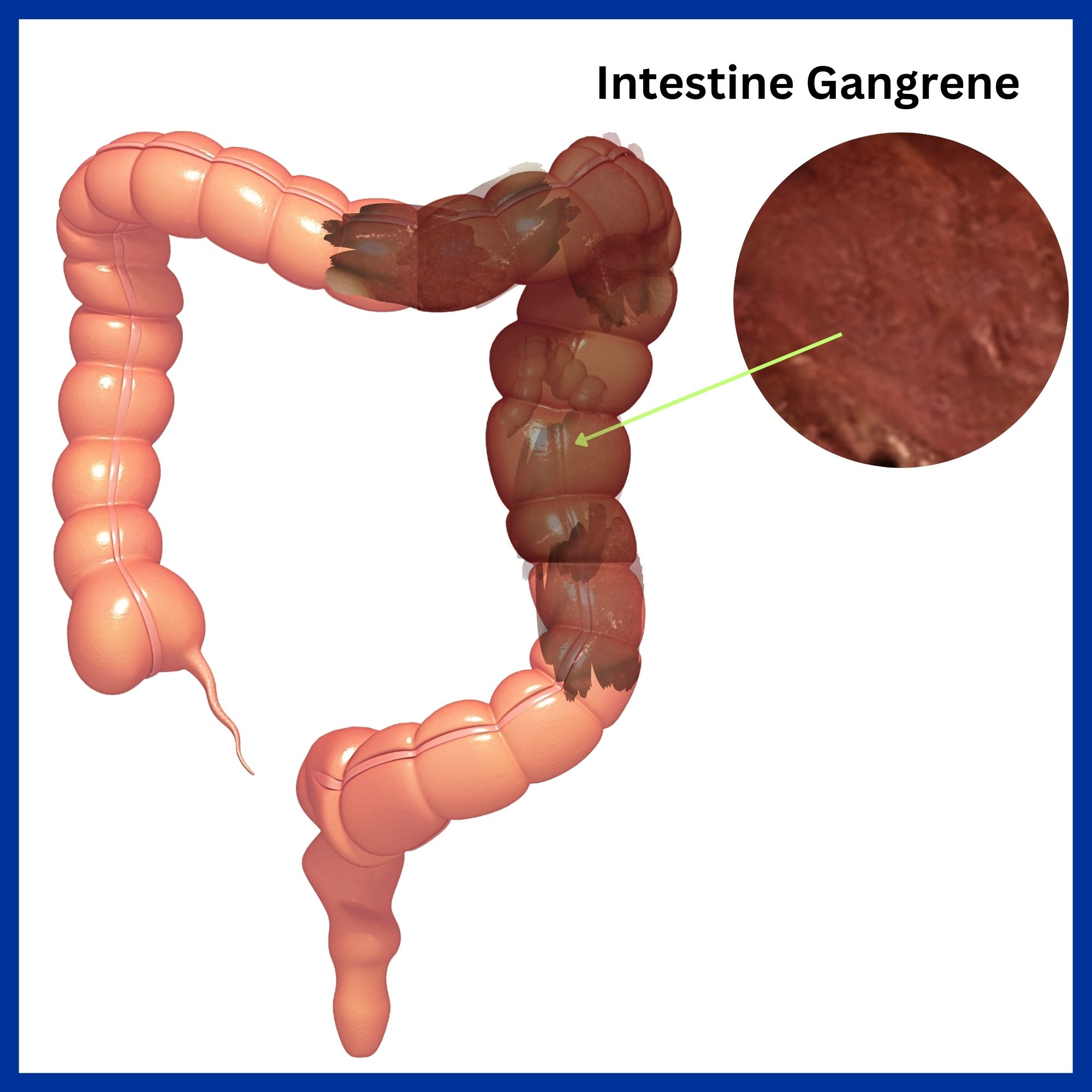
- Acute mesenteric arterial thrombosis
- Acute mesenteric arterial embolism
- Non occlusive mesenteric ischemia
- Mesenteric venous thrombosis
Signs and Symptoms of Intestinal Gangrene
- Moderate to severe, diffuse, non localized, constant, and sometimes colicky abdominal pain.
- Abdominal distention
- Nausea, vomiting
- Anorexia
- Constipation
- Diarrhoea
- Tachycardia
- Tachypnoea
- Fever
- Hypotension
- Tender mass on palpation
- Bowel sounds – hyperactive to absent
- Voluntary and involuntary guarding appears.
Diagnosis of Intestinal Gangrene
- CBC
- PT, APTT
- X-Ray Abdomen erect
- USG Abdomen
- CT Scan
- CT Angiography
- MRI
- MR Angiography
Treatment of Intestinal Gangrene
- Medicines
- Vasodilators
- Anticoagulants
- Thrombolytics
- Analgesics
- Antibiotics
- Surgery
Complications
- Sepsis and septic shock
- Bowel necrosis necessitating bowel resection
- Multiple organ dysfunction syndrome (MODS)
- Death
Cancer of Large Intestine
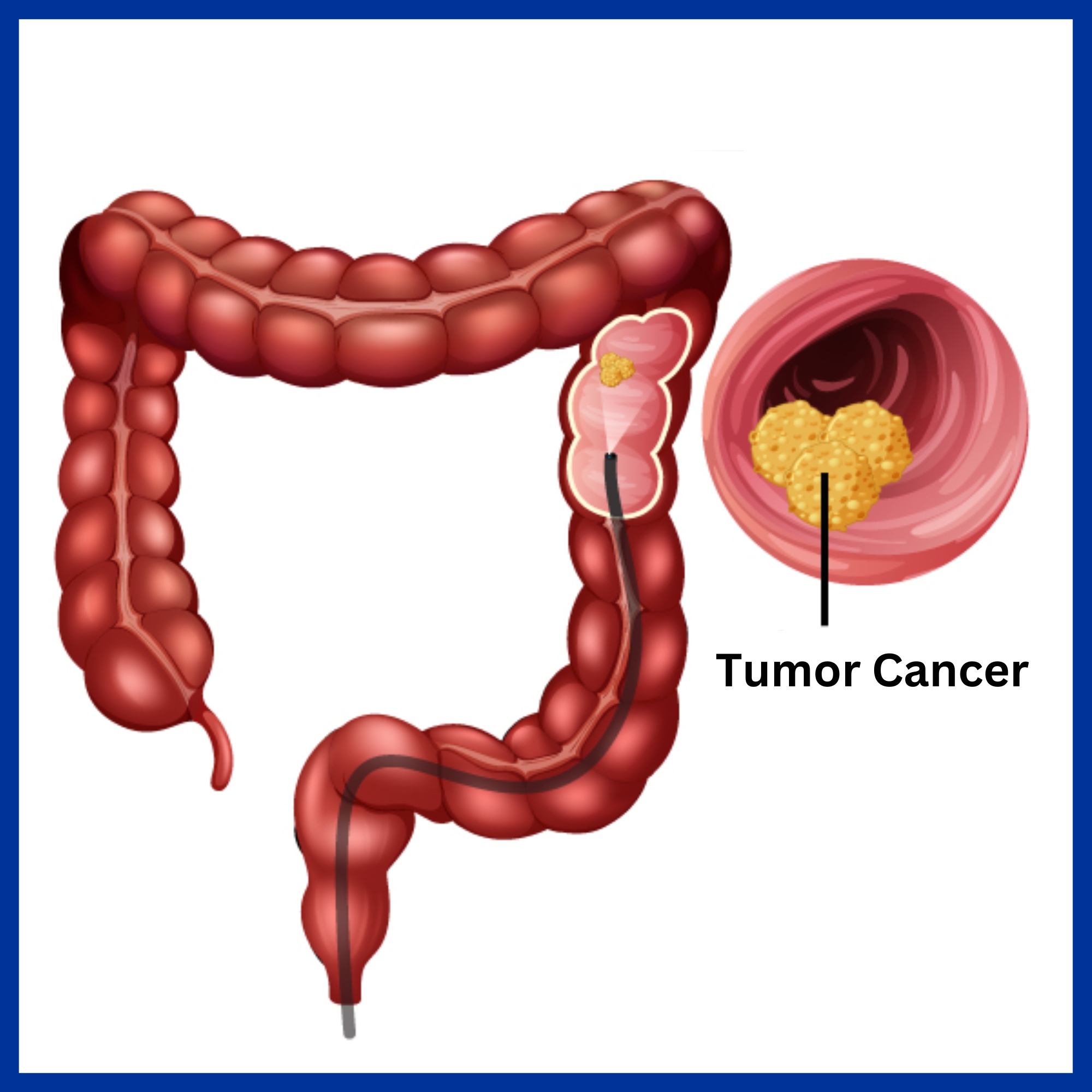
Ca colon means development of cancer in the colon.
- Stage I – Cancer limited to the superficial lining (mucosa) of the colon or rectum but hasnt spread beyond the colon wall or rectum.
- Stage II – Cancer grown into or through the wall of the colon or rectum but hasn’t spread to nearby lymph nodes.
- Stage III – Cancer has spread to nearby lymph nodes but not affectingthe other parts of body.
- Stage IV – Cancer has spread to other organs such as liver or lungs.
Risk factors
Older age- Age above 50.
Race – African-Americans have a greater risk of colon cancer.
Family history of colorectal cancer or polyp.
Inflammatory intestinal conditions – Ulcerative colitis or Crohn’s Disease.
GeneticDisorders – Familial adenomatous polyposis (FAP) and Hereditary
non polyposis colorectal cancer (HNPCC), which is also known as Lynch syndrome.
Diet– Diet which is low in fibre and high in fat and red, processed meat.
Sedentary lifestyle
Diabetes
Obesity
Smoking
Alcohol
Radiation therapy directed at abdomen for treating previous cancers.
Symptoms of Cancer of Large Intestine
- Diarrhoea or constipation or a change in the consistency of stool.
- Blood in stool.
- Abdominal cramps or pain.
- Feeling of inomplete evacuation
- Weakness or fatigue
- Weight loss
Diagnosis of Cancer of Large Intestine
- Colonoscopy with Biopsy
- CECT Abdomen + Pelvis
- Colon Cancer Staging – To know how much the tumour has spread whether the lymph nodes are involved or not and the extent of metastasis.
Treatment of Cancer of Large Intestine
If cancer is in a very early stage or localized in a polyp, it can be removed during colonoscopy.
Polyps that can not be removed during colonoscopy may be removed using laparoscopic surgery. In this procedure, surgeon performs the operation through key hole incisions in abdominal wall, by inserting instruments with attached cameras that display the colon on a video monitor.
Stage II Cancer-Partial colectomy – the part of colon that contains the cancer, along with a margin of normal tissue on either side of the cancer, is removed. Nearby lymph nodes are also removed and tested for cancer.
If the cancer is at the outlet of rectum, a permanent or temporary colostomy is done. In this surgery, an opening is created in the wall of abdomen, from the remaining portion of bowel, for the elimination of body waste into a special
bag, which is known as colostomy bag, which if healed, is removed after 1 month. In some cases, the colostomy may be permanent.
HOSPITAL ADDRESS
132ft. Ring Road, Helmet Circle, Memnagar, Ahmedabad – 380052. Gujarat, India.
EMERGENCY( 24X7 )
Mobile: +91 – 99047 44410
Help Line : +91 – 98244 40044
+91 – 79 – 2791 4444
E-MAIL ADDRESS
contact@kaizenhospital.com
WHY KAIZEN ?
With a vision to extend World Class healthcare solutions to the community through advances in medical technology, medical research and by adopting best man power management practices , Kaizen hospital was established in Ahmedabad in 2011.

